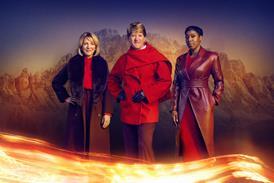With so much to celebrate, why is MTV shying away from its past?
“Hey fellow fist-pumpers! It’s the start of August, and you certainly know what that means by now.”
So declares mtv.com; no, not about the momentous occasion of its 30th birthday, but the start of a new season of Jersey Shore. Turning 30 is a fact that MTV is studiously burying.
The transition from 29 to the big, fat three zero is never easy, but MTV is clearly in denial. It may be a dab-hand at hosting large-scale, global events, but on this occasion, it is leaving it to others to do the celebrating, with nary a mention of the big day online, nor a party popper in sight.
OK, so it’s old, in the eyes of its target audience at any rate, but it has much to be proud of - from its massive impact on youth culture to the way that it revolutionised the music video. While the youth market now appears fickle, elusive and only fleetingly possible to engage with, MTV’s cultural relevance was once so great that it spawned the ‘MTV generation’, something that youth brands can only dream of nowadays.
Shaking up the music scene by placing image centre-stage, it catapulted the likes of Madonna and Prince to global fame on one hand, but remained ‘cool’ for a different audience on the other via such vehicles as MTV Unplugged, the most famous featuring Kurt Cobain. This ability to be relevant to an entire age demographic, despite their diverging backgrounds and interests, remains one of its most celebrated achievements.
However, seeing the writing on the wall for music television, MTV diversified into non-scripted series. Arguably, it should have been at the forefront of the digital revolution, but reality TV was a savvy move that helped secure its future. Its shows provided the blueprint for hits like TOWIE, but also embraced the kind of cultural taboos that others dared not touch.
The Real World, which launched in 1992, featured an openly gay, HIV-infected flatmate - unprecedented at the time. It was ground-breaking in its coverage of issues such as drug abuse within the lives of sexually aggressive 20-somethings.
And despite the controversy that surrounds it, 16 And Pregnant has been credited as a major force behind reducing US teen pregnancy rates since it first aired in 2009.
Of course, not everyone has viewed MTV in an entirely positive light. A recent article on Fox News describes an “Uzi of synthesized entertainment”, which the author equates to disseminating a drug: “Perhaps the network got hooked and its viewers got hooked on anything easy on the eyes that could pump up the ego and provide a refuge from the complexities of life, from tough news, from real drama - ultimately, from truth.
“How else can we explain that the network moved so fluidly to suggest… they were all celebrities, all worthy of starring in their own videos?”
As for Beavis And Butthead…
Lisa Campbell is editor of Broadcast


























No comments yet